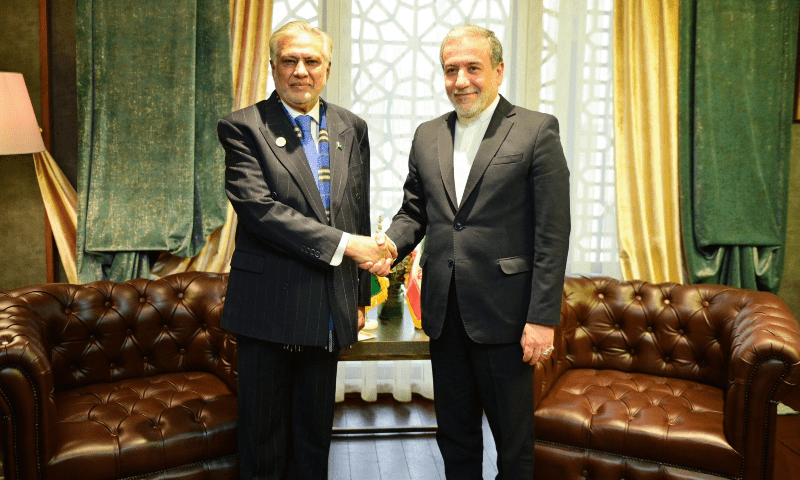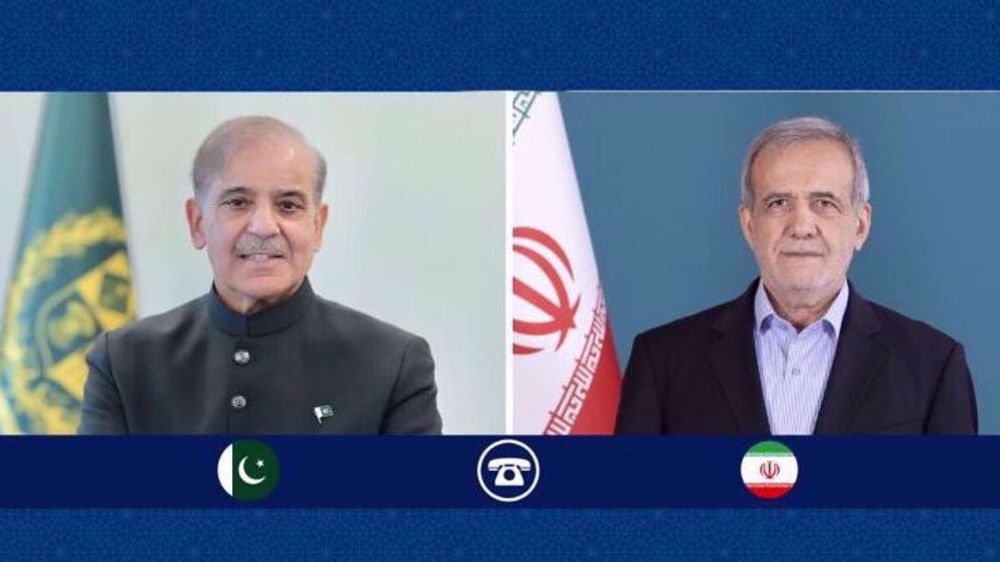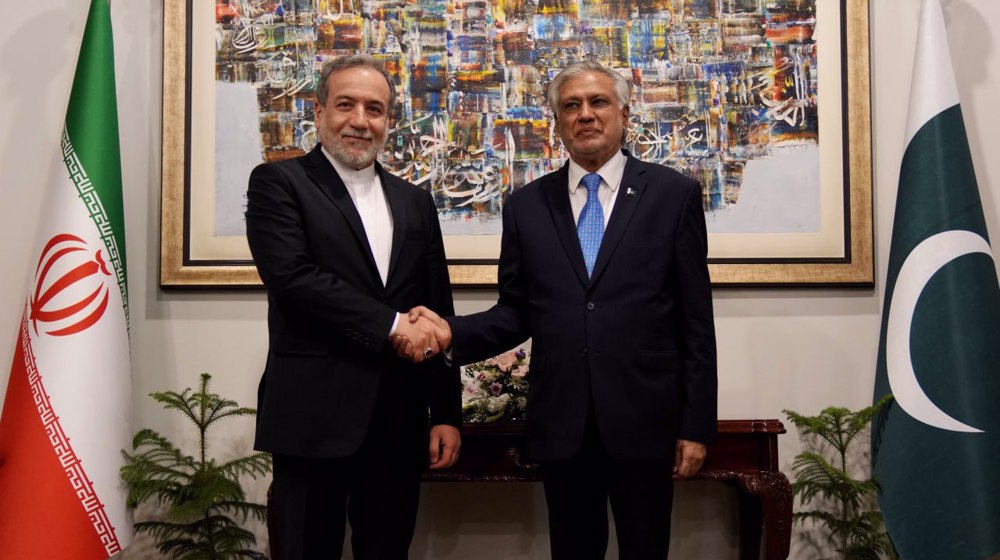Pakistan's army ‘to go to any extent’ to support Kashmir
Pakistan’s army chief says the country’s military will “go to any extent” to support people in the disputed Himalayan region of Kashmir, after New Delhi’s decision to strip the restive Muslim-majority region of its autonomous status.
Chief of Army Staff General Qamar Javed Bajwa expressed support for the people of Kashmir after a meeting with top commanders in the garrison city of Rawalpindi on Tuesday.
“Pakistan Army firmly stands by the Kashmiris in their just struggle to the very end,” Bajwa said. “We are prepared and shall go to any extent to fulfill our obligations in this regard.”
Separately, Pakistani Prime Minister Imran Khan said in an address to the Pakistani parliament that he was weighing taking the matter to the United Nations Security Council (UNSC).
“We will fight it at every forum. We’re thinking how we can take it to International Court (of Justice)... to the United Nations Security Council,” Khan said.
Stephane Dujarric, spokesperson for UN Secretary-General Antonio Guterres Stephane Dujarric earlier urged India and Pakistan to maintain peace as tensions between the nuclear-armed neighbors escalated over New Delhi’s decision.
The government of Indian Prime Minister Narendra Modi revoked the special status of Indian-administered Kashmir on Monday, a move described by Pakistan as “illegal.”
The Indian Ministry of Home Affairs announced that Indian President Ram Nath Kovind had signed a decree abolishing Article 370 of the constitution, which grants a measure of autonomy to Jammu and Kashmir, including the right to draft its own laws.
The president also moved a bill proposing that the Indian-controlled part of Kashmir be divided into two regions directly ruled by New Delhi.
The government in New Delhi also lifted a ban on property purchases by people from outside Jammu and Kashmir, opening the way for Indians to invest and settle in the disputed region like any other part of India.
Modi had earlier pushed for radical political changes in Jammu and Kashmir even before he won a re-election in May. Modi said the old laws had hindered Kashmir’s integration with the rest of India.
Moreover, prominent political leaders in the Indian-controlled region of Kashmir were placed under house arrest and the Indian paramilitary forces deployed thousands of extra troops across the region, raising fears of a crackdown.
Video images showed deserted streets on Tuesday in Srinagar, the main city of the region, which has been at the heart of a nearly 30-year armed revolt against Indian rule.

Kashmir has been split between India and Pakistan since partition in 1947. Both countries claim all of Kashmir and have fought three wars over the territory.
India regularly accuses Pakistan of arming and training militants and allowing them across the frontier. Pakistan strongly rejects the accusation.
Indo-Pakistani relations nosedived in February when over 40 Indian paramilitaries were killed in a bomb attack in Kashmir. New Delhi blamed Pakistan-based militants. Islamabad denied any involvement.
US pressure contributing to Israeli influence in Latin America: Experts
‘Enough orders from Washington’: Venezuela’s interim president slams US pressure
US officials defend fatal shooting as video contradicts government statement
VIDEO | UK Activists plan new flotilla to break Gaza siege
Israeli minister blasts Trump’s ‘Board of Peace’ plan, calls for Gaza occupation
Iran Judiciary says detained rioters not denied medical services
Discover Iran: From red earth and blue seas to green forests – natural wonders of Hormozgan
German economists urge withdrawal of gold reserves from US











 This makes it easy to access the Press TV website
This makes it easy to access the Press TV website